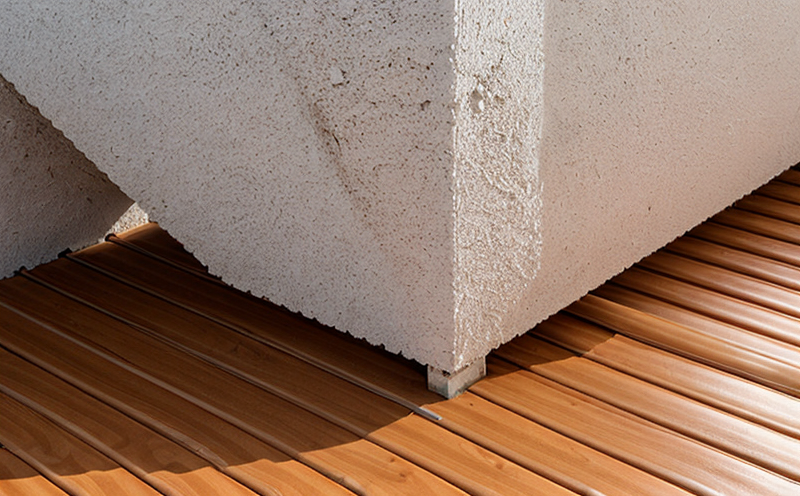Ensuring that materials used in walls, floors, and ceilings maintain their strength under bending stress
Ensuring Materials Maintain Strength under Bending Stress Why It Matters for Businesses
As the backbone of every structure, walls, floors, and ceilings are essential components that support the overall integrity of a building. However, their performance is often overlooked until its too late when they fail to withstand external forces, leading to costly repairs or even catastrophic collapses. One critical aspect of ensuring these structural elements remain safe and functional is assessing their ability to resist bending stress.
At Eurolab, our laboratory service specializes in providing precise and reliable tests that evaluate the strength of materials used in walls, floors, and ceilings under various loads. By understanding how your buildings components perform under stress, you can identify potential risks, prevent damage, and maintain a safe working environment for occupants.
The Importance of Ensuring Materials Maintain Strength under Bending Stress
Bending stress occurs when external forces, such as wind, weight, or vibrations, cause structural elements to flex or deform. If materials are not designed or manufactured to withstand these loads, they may crack, break, or even collapse. The consequences can be severe
Loss of property Damaged walls, floors, and ceilings can lead to costly repairs, replacements, or even complete rebuilding.
Injury or fatalities Failing structures can cause serious harm to people inside the building.
Business disruptions Closure due to structural issues can result in significant financial losses and reputational damage.
Benefits of Ensuring Materials Maintain Strength under Bending Stress
Eurolabs laboratory service offers a range of benefits that go beyond simply ensuring compliance with regulations
Key Benefits
Improved safety By evaluating the strength of your buildings components, you can identify potential risks and take proactive measures to prevent accidents.
Enhanced durability Our tests help you understand how materials perform over time, allowing you to make informed decisions about maintenance, repairs, or replacements.
Cost savings Identifying issues early on can save you money in the long run by preventing costly repairs or rebuilds.
Compliance with regulations Our laboratory service ensures that your building meets or exceeds industry standards and regulatory requirements.
Advantages for Businesses
Reduced downtime By addressing potential issues before they become major problems, you can minimize disruptions to your operations.
Increased customer trust Demonstrating a commitment to safety and quality can enhance your reputation and build confidence with customers.
Competitive edge By prioritizing the strength and integrity of your buildings components, you can differentiate your business from competitors.
How Our Laboratory Service Can Help
Eurolab offers a comprehensive range of tests that assess the bending stress resistance of various materials used in walls, floors, and ceilings. Our expert technicians use advanced equipment to simulate real-world loads and conditions, providing accurate and reliable results.
QA Section
Frequently Asked Questions
What types of materials do you test?
We can evaluate a wide range of materials commonly used in building construction, including steel, concrete, wood, and composites.
How do I prepare my samples for testing?
Our team will work with you to ensure that your samples are properly prepared for testing. Please follow our guidelines carefully to avoid any delays or re-tests.
What kind of results can I expect?
We provide detailed reports outlining the bending stress resistance of your materials, including recommendations for improvements or modifications.
Conclusion
Ensuring that materials used in walls, floors, and ceilings maintain their strength under bending stress is a critical aspect of building safety and maintenance. By partnering with Eurolabs laboratory service, you can identify potential risks, prevent damage, and create a safer working environment for occupants. Our comprehensive range of tests and expert technicians are dedicated to providing accurate and reliable results that meet or exceed industry standards.
Dont wait until its too late trust Eurolab to help you protect your business and its assets. Contact us today to learn more about our laboratory service and how we can support your building maintenance needs.
-
Testing the ability of materials to withstand bending forces without breaking
-
Simulating the effects of bending and flexing on construction materials under load
-
Evaluating the resistance of materials to deformation and failure when subjected to flexural stress
-
Testing for the maximum bending load that materials like concrete, metal, and composites can withstand
-
Ensuring that structural elements, such as beams and slabs, maintain their integrity when subjected to bending forces
-
Simulating conditions in which materials will bend under load and testing for any cracks or fractures
-
Verifying the suitability of materials used for structural support in bending applications
-
Testing how materials react when subjected to bending in different environmental conditions, such as heat or moisture
-
Simulating the bending behavior of materials used in high-stress applications like bridges and highways
-
Evaluating the performance of materials used for flooring and roofing under bending conditions
-
Testing the flexural strength of materials used for insulation and soundproofing in construction
-
Verifying that the flexibility of materials like plastics and composites does not affect their overall strength
-
Simulating scenarios where bending forces are applied repeatedly to determine long-term durability
-
Testing how the shape and design of a material influence its resistance to bending or flexural forces
-
Ensuring that materials in construction retain their structural properties under bending stress over time
-
Verifying the strength and reliability of materials used in lightweight and modular construction
-
Testing for the ability of materials to return to their original shape after being bent (elasticity)
-
Evaluating materials for flexibility without compromising structural integrity or safety
-
Testing for bending failure, including cracking, warping, or twisting, under excessive load
-
Ensuring that building materials can resist bending deformation caused by shifting or settling foundations
-
Simulating real-world bending conditions, such as bending from wind or seismic forces, to test material resilience
-
Testing for the ability of materials to support heavy loads without losing their shape or structural performance




